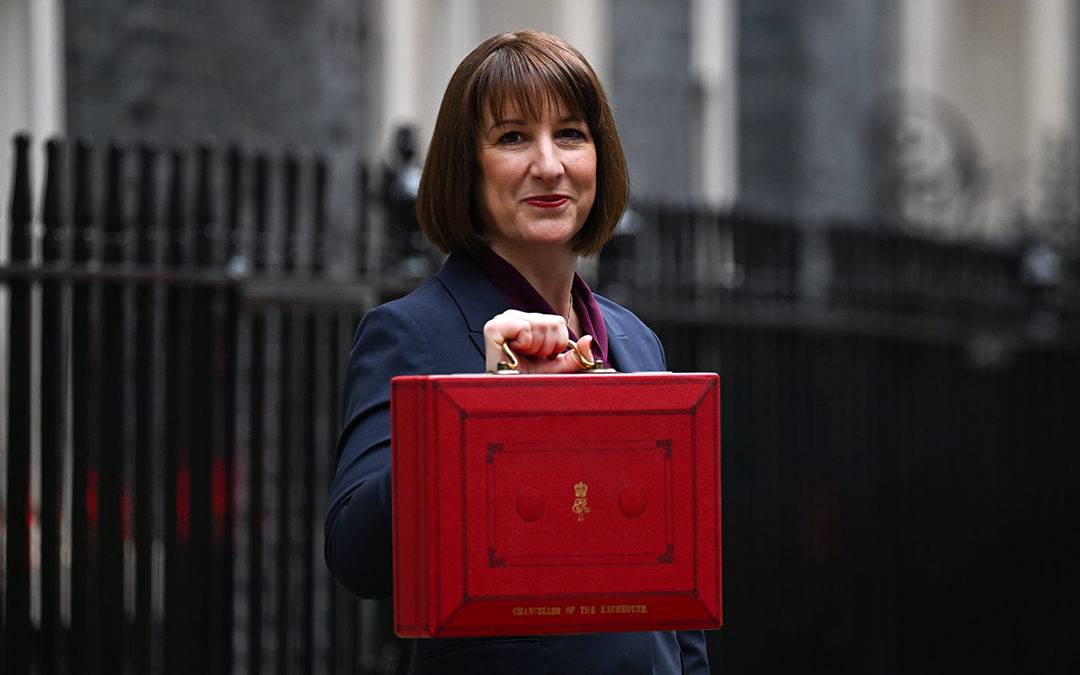Rachel Reeve’s first budget of the new Labour government has dominated headlines in recent weeks, as she announced significant changes as part of a plan to “rebuild Britain”.
While this is a UK budget and covers many local issues, a common question from our clients is how it will impact British expats or those living overseas with ties to the UK.
Whether you’re a British expat, you own UK property, have a UK pension, or plan to send your children to school in the UK, these changes could alter your financial planning strategies.
In this article, we highlight six key takeaways that directly impact you as an expat.
1. Increase in Capital Gains Tax (CGT): Making UK Assets Less Attractive
For disposals made after 30th October 2024, CGT rates will increase as per the below:
- Basic rate taxpayers: increase from 10% to 18%
- Higher and additional rate taxpayers: increase from 20% to 24%
This move will make UK-based assets, such as property or other taxable assets, less appealing for expats, as higher rates of tax will significantly eat into the return you achieve.
As an expat – particularly if you are based in a low tax environment like the Middle East – it would be prudent to evaluate your investment decisions carefully, and potentially explore alternative investment opportunities or asset classes with less punitive tax implications.
2. Stamp Duty Hikes on Second Homes: Making UK Property Investing Even Less Attractive
For expats based in the Middle East or other low-tax jurisdictions, UK property investments were already unappealing due to rising costs, increased administrative burdens, and the need to navigate (and pay!) UK tax.
With Stamp Duty on additional properties increasing from 3% to 5%, UK property has become even less attractive as an investment option. Non-residents purchasing UK property now face a 2% surcharge on top of standard Stamp Duty rates, along with the 5% additional charge for owning more than one property.
For example, buying a £700,000 property as an expat will now incur £74,000 in Stamp Duty alone, an effective tax rate of 10.57%!
And this figure doesn’t include other upfront expenses such as legal fees, surveying, and mortgage costs, which will push the total even higher.
For those who already own UK property, the financial burden associated with investing further in UK property has compounded. Higher upfront costs, ongoing maintenance and tax obligations, and increased taxes on eventual sale, make UK property investing increasingly prohibitive for expats.
Instead of property, expats should explore more efficient asset classes like stocks and bonds for long-term savings. These options often offer greater flexibility, tax efficiency, and growth potential, especially while living abroad.

3. Inheritance Tax (IHT) Changing from Domicile to Residency Basis
A major shift in IHT rules now means residency, not domicile, will determine the tax obligations of your estate on death. While this is a complex area, here are a few key scenarios to consider:
- Long-term expats with no plans to return to the UK: Expats who have lived abroad for over 10 years and sever all ties to the UK (i.e. own no UK assets) will now generally fall outside the UK IHT net.
- Long-term expats maintaining UK ties: Expats who retain connections to the UK, such as owning a UK property, may unintentionally fall into the UK IHT net despite living abroad.
- Expats planning to return to the UK after 10+ years abroad: Those who return to the UK after a decade abroad will re-enter the UK IHT net. However, they can benefit from the new Foreign Income and Gains (FIG) regime, which exempts their foreign income and gains from UK tax for up to four years after their return. This may be of particular interest to the average expat, who lives and works abroad before returning to the UK in retirement.
These changes shift the landscape considerably, and increase the complexity of estate planning for expats. It’s essential to review your wills, trusts, and estate plans, as well as any plans for repatriation, to ensure they align with the new rules and help minimise your inheritance tax exposure.
Please keep in mind that we have only discussed the key headlines in this article, so please seek professional advice around your own personal situation.
4. IHT Nil Rate Bands Frozen: The Expanding IHT Net
Currently, the Nil Rate Bands for IHT are:
- Nil Rate Band: £325,000
- Residence Nil Rate Band: £175,000 (available if the family home is passed to direct descendants)
For a married couple, these can be combined to allow up to £1,000,000 to pass free of IHT.
Despite rising asset prices, the government has frozen these bands for an additional two years, extending the freeze until 2030. As a result, more estates will exceed the thresholds and become subject to IHT.
To put this in perspective:
- These bands have remained unchanged since 2009.
- UK inflation has increased by 86% since 2009.
An estate valued at £540,000 in 2009 (including a family home) was well within the £1,000,000 threshold. Today, the same estate – assuming it simply kept pace with inflation and experienced no meaningful growth – would be worth £1,004,400, exceeding the threshold and incurring IHT at a rate of 40%.
Freezing thresholds until 2030 will exacerbate this issue, pushing more families into the IHT net and intensifying existing IHT liabilities over the next six years.
Expats with a net worth exceeding £1,000,000 and potential UK IHT liabilities should consider estate planning strategies, such as gifting or trusts, to reduce the taxable value of their estate – especially if asset values are expected to rise further in future.

5. Pensions Potentially Falling into the IHT Net from 2027
One of the most concerning potential changes for expats is the inclusion of pensions within the scope of IHT starting in 2027.
Under current rules, pensions have been an excellent vehicle for high-net-worth individuals and families to pass wealth to future generations. Many wealthy retirees strategically draw on other assets first – such as ISAs, General Investment Accounts, or Investment Bonds – to fund their retirement, effectively reducing the taxable value of their estate while preserving the IHT exempt assets held within their pensions.
If implemented, this change would significantly alter the pensions landscape, requiring a reassessment of the role pensions play in your overall financial plan.
It is important to note, however, that this change has not yet been finalised and is currently under consultation. Even if confirmed, it will not take effect until 2027. While careful planning and monitoring are necessary, expats should avoid making any hasty decisions in the meantime.
6. VAT on Private School Fees
The introduction of VAT on private school fees (relating to the school term starting 1st January 2025 onwards) is a significant development, given many expat families choose to send their children to private schools in the UK.
This change will increase the cost of education, potentially prompting families to reconsider whether private schooling in the UK remains worthwhile.
As a result, financial planning and budgeting for education expenses will need to be carefully reviewed and adjusted accordingly.
Conclusion:
The latest Budget has introduced sweeping changes that affect expats with UK ties. Whether it’s the increased cost of holding UK assets, changes to IHT rules, or the rising expense of private education, these measures highlight the importance of proactive, forward thinking financial planning.
If you’re an expat, it’s crucial to review your financial plan to address these changes and ensure your finances remain optimised to achieve your future goals. To discuss your specific circumstances or explore tailored strategies, please get in touch. One of our professional Financial Planners will be happy to assist you.
By Technical Team @ Abacus
Please keep in mind that, whilst we aim to update these articles periodically, the content could be subject to future rule changes. Always make sure to speak to a qualified professional to ensure you have the most up to date information and are taking regulated advice around your specific circumstances.

